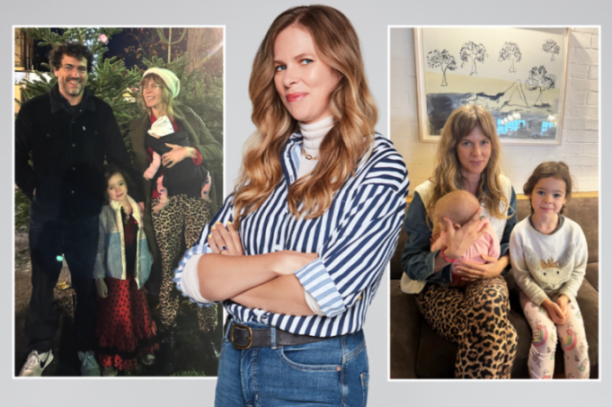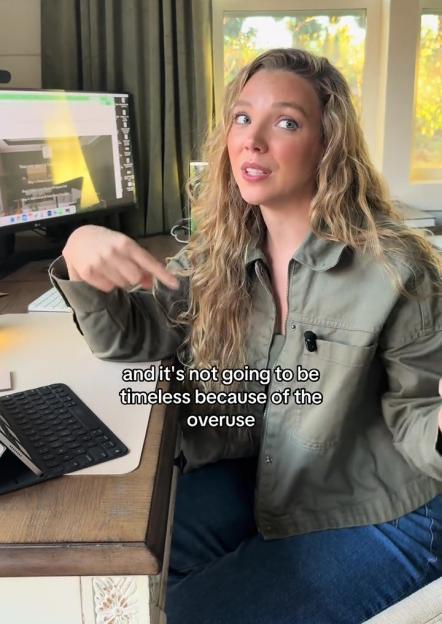WHEN I left my marriage, I thought it was all my husband’s fault.
I didn’t want to start again at the age of 55, but I felt I didn’t have a choice.
 I was sure that the reason our marriage broke down was all his fault – but it was mine, candidly admits Jane Green
I was sure that the reason our marriage broke down was all his fault – but it was mine, candidly admits Jane Green  We would snap at each other and swallow the terrible things you think but can’t say, says Jane (pictured with her ex-husband)
We would snap at each other and swallow the terrible things you think but can’t say, says Jane (pictured with her ex-husband) Filled with sadness and blame, I truly believed that had he been different, we would still be married.
Divorce is always brutal. We vowed to stay friends, to try and stay together as a family, still doing Christmas and holidays together.
But as the months progressed and as we battled over money and what we each believed we deserved, things started to get sticky.
After I left, we navigated our divorce via Zoom, choosing to do mediation rather than litigation.
The latter would have cost a fortune and there’s no doubt that we would have ended up hating each other.
But it was still hard. Long-held grievances came out in those video calls.
We would snap at each other and swallow the terrible things you think but can’t say, for once they are said they can never be unsaid.
I wanted to try and get through the divorce as painlessly as possible, but our mutual pain and grief was written all over our faces. When we’d Zoom, I would sometimes cover my husband’s face with a Post-it note because it was so painful to see him.
I was sure that the reason our marriage broke down was all his fault.
But it’s been almost six months since the divorce came through and a strange thing has happened.
I’ve realised how much of the fault lies with me.
Like many women who grew up in the Seventies, I was raised to be a people-pleaser.
We weren’t surrounded by helicopter parents who adored us unconditionally. Far from it.
In summer holidays and every weekend, we were turfed out of the house in the morning, essentially told we wouldn’t be welcome back before supper.
Like many parents of that era, mine weren’t terribly interested in children. If we behaved well, all was good, but heaven forbid I was in a bad mood or didn’t appear with a smile.
“Jane is difficult,”; became the family mantra. “She’s moody.”;
I learned very young to take the temperature of the house when I walked in. If my mother was in a good mood, all was good and my whole body would relax.
The days when that wasn’t the case told a very different story.
How people pleasing could be ruining your relationship
EVERYONE wants to be liked but people pleasers engage in behaviours that attempt to win the affection of others at the expense of their own wellbeing – and in relationships the balance of power can be in favour of one person.
Relationship counsellor Georgina Sturmer explains: “If we have ‘people pleasing’ behaviours, it makes it really hard to feel as if we are allowed to voice what we need.
“These habits develop as we grow up and are often ingrained more deeply by social expectations, particularly on women.
“It often comes hand-in-hand with low self-esteem and may lead to us failing to truly know what we really need, as we are so used to denying our own desires or thinking we do not deserve them to be met.
“There’s usually a fear that if we voice these needs, we will be met with rejection.
“However, lots of people pleasers may hope or expect, sometimes without realising, that their partner can read their mind.
“There’s also an expectation that if we have to articulate our needs, we are perhaps failing in some way, when the reality is that none of us are mind readers.
“In these circumstances, it can be incredibly difficult to have a balanced relationship. Your partner has to rely on assumptions or guesswork on what makes you happy, all of which leads to frustration and miscommunication.
“It’s key to find balance â learning to express our own needs and desires, while also listening to those of our partner. Then the relationship can flourish.”;
I could smell the atmosphere from the welcome mat and would tense up. I would tiptoe around on eggshells, trying to avoid her.
There was always the possibility of an explosion waiting around the corner and, on those days, nothing I said or did was right. It was similar with my father.
I would twist myself in knots to ensure I didn’t set off a row.
As I grew older, our relationship changed and we are now a close, loving family. But those early days were hard.
What I didn’t know then was how I was unconsciously being trained to become a people-pleaser.
The alternative â standing up for myself â was so often met with anger, I would do anything to keep the peace.
 Jane and her ex-husband on their wedding day
Jane and her ex-husband on their wedding day This was the great epiphany about my marriage.
As long as I was blaming my husband for our relationship going wrong, I would stay stuck and likely find that my next one would have the same dynamic.
The end of a marriage is rarely one person’s fault. A relationship is a dance that two people do together.
If I was to heal and, more importantly, learn not to repeat the same mistakes in another relationship, I would have to look at my part.
I realised very quickly that a huge part in my marriage not working was my inability to speak up for myself because I was frightened that if I did, I would be abandoned.
Instead, I learned to stay silent. It was exhausting and I withdrew into myself, the gap between my husband and myself growing larger and larger.
UNCLEAR BOUNDARIES
We hear a lot of talk these days about boundaries, telling those around us what we will and will not put up with.
Because I was raised in a family where my boundaries weren’t considered, I learned that my needs didn’t matter.
My husband wasn’t very clear about boundaries either. A people-pleaser himself, he often said yes to keep the peace.
There were times when we had unannounced guests that I felt uncomfortable about, which led to disagreements.
It put a strain on the relationship, but I’d already gone through a first divorce and didn’t want to put my four children – or two stepchildren – through that hell again.
Because of this, I think I suppressed my feelings, not speaking up about things that made me desperately unhappy.
It continued for years.
What I didn’t realise was that every time I agreed to something I didn’t want, resentment was building inside me, eventually pushing the two of us far apart, with no way to come back together.
I learned to stay silent. It was exhausting and I withdrew into myself, the gap between my husband and myself growing larger and larger.
There was further strain when we hit some financial difficulties after my husband lost his job and we eventually had to look at downsizing.
I was heartbroken about leaving our home, a house I loved, that was always filled with kids, friends and parties.
We started looking for a new place but disagreed about the best option.
My resentment made me silent, angry and cold. The easy affection that had existed between us for years had gone.
When I looked at my husband, I no longer felt warmth and love. I was cold to him and unsupportive, while nothing I did or said was right.
I had no idea how to talk to him about how I felt without it ending up in a row. I was so tired of the anger, it was easier to stay silent, to withdraw so completely.
He felt like a roommate rather than my partner.
 The end of a marriage is rarely one person’s fault – a relationship is a dance that two people do togethes, writes Jane
The end of a marriage is rarely one person’s fault – a relationship is a dance that two people do togethes, writes Jane  I realised very quickly that a huge part in my marriage not working was my inability to speak up for myself, says Jane
I realised very quickly that a huge part in my marriage not working was my inability to speak up for myself, says Jane Eventually it blew up. We had a row and this time I knew it was the last time.
Sobbing, I packed two suitcases and left.
Crushed by grief, I eventually started â with the help of a therapist â doing the very hard work of looking at myself and just how much I contributed to my marriage failing.
Whatever issues my husband brought to our relationship, I finally understood that my inability to speak up and ask for what I needed, to hold my ground on the things that were important to me, had been the death knell for us.
I swallowed all my pain and resentment until I eventually imploded.
It was easy in the beginning to blame my husband, but I realised that’s not the full story. I gave up my voice, recreated my childhood home in my marriage, then blamed him.
Perhaps it’s not that he is entirely blameless, but that in looking at what I did wrong, I’ve found so much of the hurt and resentment falling away.
The signs you're heading for divorce
PSYCHOLOGIST Emma Kenny highlights the quirky ways that mean your relationship could be heading towards a separation.
She says: “These signs aren’t a foregone conclusion, but if you spot any of them creeping in, talking through your worries with a supportive and neutral friend, a counsellor or therapist can help you reconnect before those quirky issues turn into a permanent parting.”;
1. The Passive-Aggressive Coffee Cup
Did you always enjoy bringing each other morning brews brimming with love? But now only make your own, without even considering if your other half fancies one?
If you notice you no longer think of the little things that make one another feel valued, it could be a sign that resentment is brewing.
2. The Duvet Tug-of-War
Sharing a bed can feel like a nightly battle if one of you has become a blanket bandit.
That never-ending tug-of-war can hint at a deeper sense of wanting space, both under the covers and in your relationship.
3. You Laugh At, Not With
Light-hearted teasing can be sweet, but if jokes turn barbed, poking fun at each other’s habits, dreams, or even new hobbies, you might be masking real frustration. When laughter becomes a weapon, the cracks in your marriage may be widening.
4. The Deafening Silence
If your home has gone eerily quiet: there’s no laughter, no playful banter, not even comfortable chit-chat about the day: this is a red flag.
Silence might seem like a peaceful break from arguments, but it often signals deeper emotional distance.
When you’re no longer investing in each other’s thoughts or experiences, it suggests that resentment or apathy has taken hold.
I’m starting to date again and this time, my approach is completely different.
Now, I walk away at the first sight of a red flag. I’m learning to ask for what I need and if those needs cannot be met, I wish them well and say goodbye.
The dating apps have taught me so much, too, especially how to speak up for myself.
I asked someone not to call me “darling”; the other day.
On another date where there was no chemistry, I could tell he was going to kiss me and I asked him not to. He went ahead and kissed me.
Months later he got back in touch and I told him that kissing me after
I asked him not to was a dealbreaker for me.
I don’t know that I will ever marry again, but I do know that in my next relationship, I will no longer be a people pleaser.
I’ll insist that my voice be heard.







